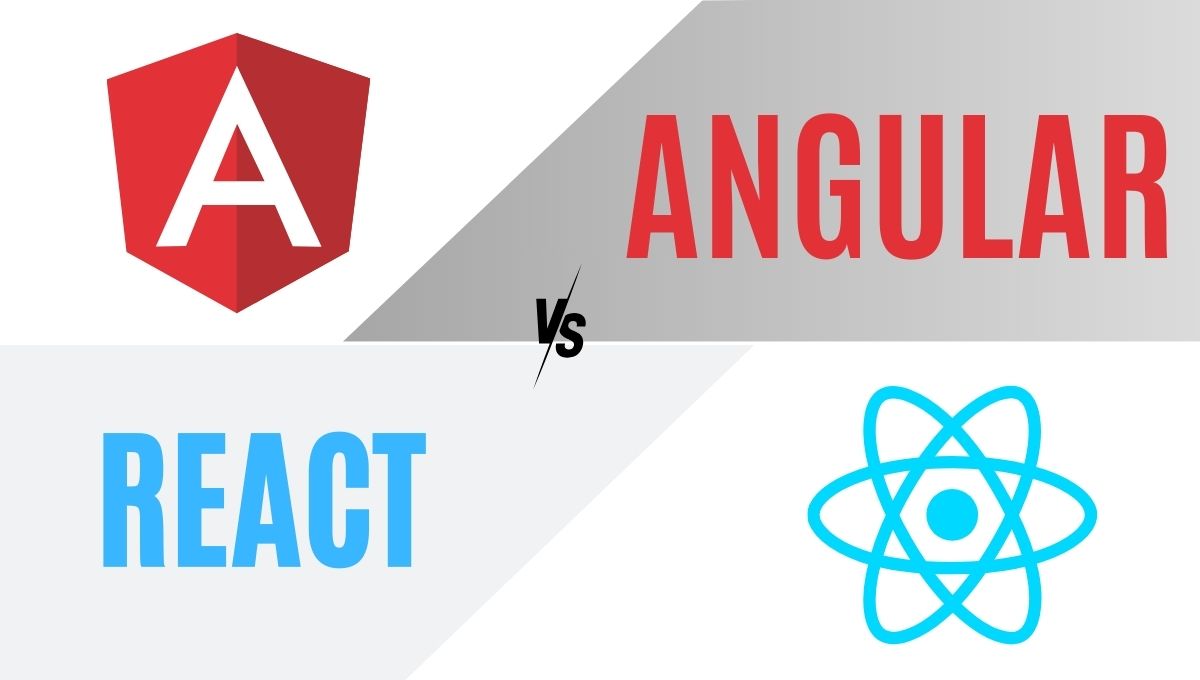Complete Guide on what is Magento – Do you want to start an eCommerce website?
If yes then Magento Ecommerce is the best platform for you. This platform offers you various features and functionality that can make your eCommerce business growth super easy.
In this blog, I am going to share the ultimate guide about Magento eCommerce. So if you have any query regarding Magento then read continue.
Ultimate Guide on Magento eCommerce: From beginners to Advance
The Magento eCommerce platform is software which helps in building eCommerce websites.
This eCommerce website builder is successfully used by retailers around the world, from small businesses to more prominent eCommerce merchants such as Ford, Coca-Cola, Procter & Gamble, Jaguar Land Rover, HP, Tommy Hilfiger, ASUS and more.
Since March 2008, the Magento platform was officially released as an eCommerce website builder and till now it is continually growing. This platform has a large professional community that is rapidly changing in this platform.
At this time, there are two main evaluations of the eCommerce website builder, Magento 1 and Magento 2. One of the main reasons eCommerce developers love Magento is its customizability and ability to scale as your business grows. Thousands of modules, themes and extensions are available for Magento store developers, and custom features can be included.
Best Magento Development Companies
What does Magento eCommerce do?
As an advanced e-commerce platform, Magento enables entrepreneurs or business owners to create and run a robust online store. Merchants gain access to an enhanced shopping cart and control over the design, functionality and user experience of their online store within the Magento ecosystem. Merchants can also use built-in tools within Magento to create effective marketing campaigns, optimize content for search engines, improve customer service, and manage product catalogs.
What is Magento Software: Open Source vs. Commerce
This eCommerce builder platform has 2 versions one is Magento open source and second is Magento Commerce that is also known as Adobe Commerce. Understanding which one is best for you depends on the size of your business and your unique needs. Let’s break each down below.
Magento Open Source ecommerce software
This is the free version of the Magento eCommerce builder that includes several of the same features as Magento Commerce. Magento Open Source was until recently known as Magento Community Edition.
Magento Commerce was originally released in 2007 as a public beta version but the full open source version was released in March, 2008. Since Magento Open Source is built on open source technology, developers are not locked into the software provided – meaning they can make changes to the application and incorporate other technologies.
This also means that developers can build Magento Open Source into something customized to suit their needs. This is something developers cannot do as freely with Magento Commerce.
Magento Open Source offers an impressive core set of features, but what shines are the additional features offered through the countless extensions currently available. There are thousands of extensions available on the Magento platform right now.
To use Magento Open Source Business owners need a Magento development experts support that helps them in building the high class eCommerce website. Because to set up a website on this platform you need technical knowledge.
Magento Commerce Adobe version
Magento Commerce Edition is an all-in-one cloud solution that includes support and other features for enterprise sellers, such as managing dedicated Magento accounts.
The self-service version of Magento Commerce, formerly known as Magento Enterprise Edition, was originally released in 2016. Since then, it has become a regular part of the Magento community as larger e-commerce businesses seek more functionality as their sites become more complex and gain a more significant global presence.
If you are running an enterprise-level e-commerce business, Magento Commerce is probably the best platform for your online store. You can also implement this platform as an on-premise solution or a platform-as-a-service (PaaS) cloud solution (Magento Commerce Cloud).
Differences between Magento Open Source and Magento Commerce
There are several differences between the Open Source and Commerce versions of Magento to consider before deciding which version of Magento is right for your store, including:
| Contains | Magento Open Source | Magento Commerce |
| Responsive Ecommerce Website | yes | yes |
| Engine/product and promotion catalog management | Yes | Yes |
| Checkout, payment, shipping and order management | Yes | Yes |
| Site admin panel | Yes | Yes |
| ElasticSearch | No | Yes |
| Predefined B2B functionality (version 2.2 and higher) | No | Yes |
| Magento shipping | No | Yes |
After this differentiation let’s discuss some pros and cons of the Magento eCommerce software.
Pros of Magento Ecommerce
Magento is one of the most popular content management systems (CMS) for high-traffic e-commerce – and today there are over 180,000 known live websites that use Magento. While the Magento eCommerce platform offers some robust features, it does not come without its drawbacks. Below, we’ll detail the pros and cons of the Magento platform to help you decide if it’s right for your e-commerce store.
#1 Enhanced Flexibility
The open source nature of the Magento platform means that it offers increased flexibility and customization options. Regardless of your industry or niche, you can customize your ecommerce store based on the features and functionality you need. Magento also allows users to integrate third-party extensions or customized third-party extensions and systems, such as enterprise resource planning (ERP), customer relationship management (CRM), and payment providers.
#2 Advanced Features
Magento offers several advanced features that enable merchants to create powerful e-commerce tools. The Magento platform offers a variety of tools that include:
- Marketing, promotion and conversion
- Site management
- Search Engine Optimization (SEO)
- Catalog management
- Browsing products
- Browsing the catalog
- Checkout, payments and shipping
- Order management
- Customer Accounts
- Customer service
- Mobile store
- International support
- Analysis and reporting
#3 Simplified Scalability
As an entrepreneur or business owner, making sure your e-commerce is easily scalable as your business grows is critical to your success. Magento users can scale their online store effortlessly as the platform can support hundreds of thousands of products and thousands of transactions per hour. The product capacity of your e-shop can grow even more with Magento Commerce Cloud, which offers the unlimited potential that the cloud is known for.
#4 Community
Due to Magenta’s popularity, it has many users and contributors. This makes it easy for merchants to get the support they need when dealing with Magento-related issues. It also means that the Magento platform is constantly featuring new extensions, plugins and integrations created by its developer community. This enables merchants to create cutting-edge and innovative online stores.
#5 Mobile-Responsive Design
ECommerce customers are mobile-first, which means online stores need to be responsive on smart devices. Magento makes it easy for merchants to create mobile-friendly e-commerce stores that work seamlessly on smartphones, tablets, and computers. Magento Progressive Web Application (PWA) Studio also allows merchants to develop, deploy and maintain a PWA store on top of Magento 2.3 and above.
Cons of Magento eCommerce
#1 Expensive to use
While Magento Open Source is free, merchants will need to pay for Magento 2 development, ongoing site support and maintenance, as well as extensions or plugins – all of which can be expensive. Higher levels of Magento – like Magento Commerce or Magento Commerce Cloud – come with even higher development prices. There are also licensing costs for Magento users based on e-commerce revenue.
#2 Complicated Development Processes
Unless you hire a professional Magento developer, custom website development can be complicated. In order to successfully create an eCommerce store using Magento, you will need at least deep experience with PHP, MySQL, and Git. New entrepreneurs or business owners who want to create a Magento eCommerce website for the first time do not need to have the technical skills to do so quickly.
#3 Intensive Hosting Requirements
Running a Magento e-commerce store means that you will need a powerful hosting provider that can meet the demands it requires. This means that cheaper hosting solutions such as shared hosting may not be equipped to work with a Magento website. You will need a virtual private server (VPS), dedicated server, or cloud hosting solution for your website to function properly.
Magento eCommerce: What is the meaning of Extensions in Magento?
Magento is a complete e-commerce solution, but retailers can add additional features by installing Magento extensions created by third-party developers. Magento Extensions extend or enhance existing platform features. Nexcess has created several Magento extensions, including the popular Turpentine extension for better compatibility with Varnish. We also created Sentry, a two-factor authentication extension for Magento. There are so many Magento extensions available for both free and premium in the marketplaces.
Magento eCommerce: What are the Themes in Magento website development?
Magento themes are like Magento extensions, except that themes focus on website design rather than adding new features. Every Magento store uses a theme, and like extensions, there are free themes, paid premium themes, and custom themes developed for specific sellers.
What is Magento Commerce Marketplace?
Magento Commerce Marketplace is an officially supported repository of extensions and themes that you can add to your Magento eCommerce store. Magento thoroughly vets all the extensions and themes they distribute on their marketplace, so you can be sure that everything you find in their library is safe and useful.
However, Magento Commerce Marketplace is not the only trusted source of Magento extensions and themes. However, if you’re unsure about the quality of an extension or theme made for Magento that you’ve found from another developer, check if it’s on the Magento Marketplace to make sure it’s been vetted by Adobe.
How to manage the Hosting in Magento eCommerce website?
Every e-shop needs a hosting provider. Ideally, the hosting provider will take care of the store’s internet connection, the server that runs the Magento platform and its database, and the support vendors need to provide their users with a fast and personalized shopping experience.
As Magento requires specific hosting conditions to provide the best e-commerce performance and reliability, choosing a fully managed Magento hosting solution will ensure that your website is optimized to its full potential. For example, with Nexcess Fully Managed Magento Hosting, you can get the speed, security and reliability you need to start your journey as an eCommerce seller.
Should You Choose Magento as Ecommerce Platform?
Magento is a powerful open source eCommerce tool packed with innovative features and functions and a thriving community. Not only is this platform flexible and customizable, but it also easily adapts to online businesses as they grow. Additionally, it comes with a variety of tools to help entrepreneurs and business owners expand their reach, optimize content for search engines, and create mobile-friendly websites.
However, Magento does not come without its drawbacks. Magento development can be expensive – and unless you plan to hire a professional Magento developer, you will have to overcome a steep learning curve to create a functional and innovative website. What’s more, Magento websites are multi-layered and resource-intensive, which means you’ll need to reach for more advanced hosting solutions to keep your e-commerce running smoothly and efficiently.
Read More – Top Magento Development Companies
Wrap up
For every technical person, Magento eCommerce is the best place to start their online business. Because you can use this amazing software absolutely free. Besides, if you have no knowledge about coding then you can take help from a Magento Developers. They will help you in building your website at a one-time cost.
Then you can add more features in the future according to your budget. I will recommend this platform for all those business owners who want a rapidly growing business because with this platform you can easily scale up your website.








